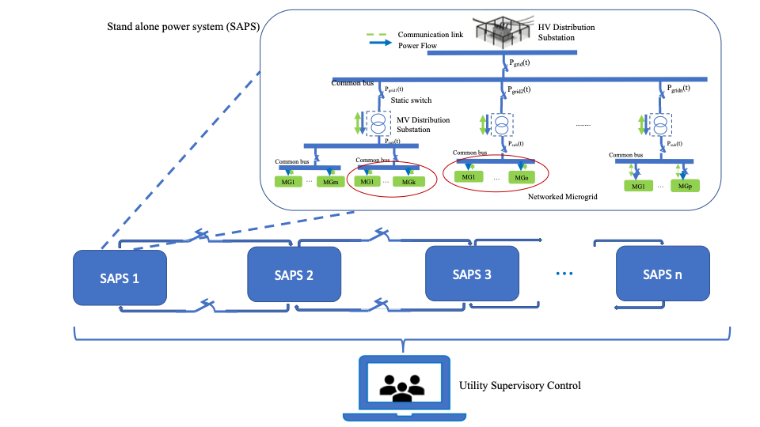
Transforming Power Systems for a Sustainable Future
Dr. Maryam Khanbaghi, an associate professor in the Department of Electrical and Computer Engineering and director of the Power Systems and Sustainable Energy Program, has been awarded the highly prestigious National Science Foundation (NSF) CAREER award for her effort to combat climate challenges by revolutionizing power systems. This accolade underscores her emerging leadership in the power systems field and acknowledges her innovative contributions, marking a vital step toward a greener and more sustainable future. The project introduces a comprehensive framework to model a multi-layer power system. This framework considers intermittent renewable energy sources and establishes a robust scheduling scheme to empower system operators to deliver power efficiently.
According to Dr. Khanbaghi, the significance of the project extends well beyond its technical achievements. She is deeply committed to cultivating the next generation of engineers to the power and energy field, fostering an integrated effort to ensure a sustainable future. She is dedicated to increasing awareness among local underserved communities about the impact and utilization of renewable energies. She understands the importance of diversity and sustainability in engineering and is particularly committed to promoting and engaging women in electrical engineering. Dr. Khanbaghi's leadership and expertise, alongside her commitment to promoting women's involvement in electrical engineering, not only ensure technical excellence but also speak to the project's broader societal impact.
On the technical side, the project envisions two major advancements. First, to improve the grid's resilience by implementing microgrids and reducing dependence on long transmission lines, while also developing an advanced supervisory algorithm for more efficient energy management. This algorithm will enable system operators to take appropriate actions for delivering power to customers more reliably and efficiently. Her expertise and leadership in this area ensure that the project is driven by cutting-edge research and innovative solutions that show promise to enhance sustainability, promote energy efficiency, and foster technological innovation, potentially leading to economic benefits and a more reliable energy supply for all.
Under Dr. Khanbaghi’s guidance, the intellectual merits of the project lie in establishing a fundamental framework for the energy management of a modernized electric grid that is agile, reconfigurable, clean, and resilient. Its transformative potential lies in the provision of a comprehensive model for a multi-layer power system, accounting for intermittent renewable energy sources, and an efficient scheduling scheme enabling system operators to make informed decisions in delivering power to consumers.
Although the project has the transformative potential to create a more efficient and reliable energy management system, it does come with its share of challenges. While the recruitment of qualified Ph.D. students is a significant hurdle, her experience in mentoring and training researchers ensures the project's success. With her guidance, the team will be well-equipped to tackle the challenges that arise during the project's five-year timeline from September 2023. This project represents a vital step toward a sustainable and resilient energy landscape. By embracing innovation, collaboration, and a commitment to a greener future, Dr. Khanbaghi and her team strive to revolutionize our power systems with the ultimate goal of ensuring a cleaner, more reliable, and more efficient energy future for generations to come.
Dr. Khanbaghi's interest in this project stems from a deep-rooted desire to improve people's lives and reduce the impact of blackouts. “As an engineer, it's not just about problem-solving, but about improving people's lives through the application of science,” said Dr. Khanbaghi. She envisions a future where we rely solely on clean energy sources by restructuring the grid. While Santa Clara University serves as the initial testing ground for her transformative solutions, her vision extends nationwide. Dr. Khanbaghi's project aims to collaborate with other universities, fostering a collective effort to revolutionize the energy sector, ensuring clean, reliable power access for all, and contributing to a more environmentally conscious society.

The Faculty Early Career Development (CAREER) Program offers the National Science Foundation's most prestigious awards in support of early-career faculty who have the potential to serve as academic role models in research and education and to lead advances in the mission of their department or organization.